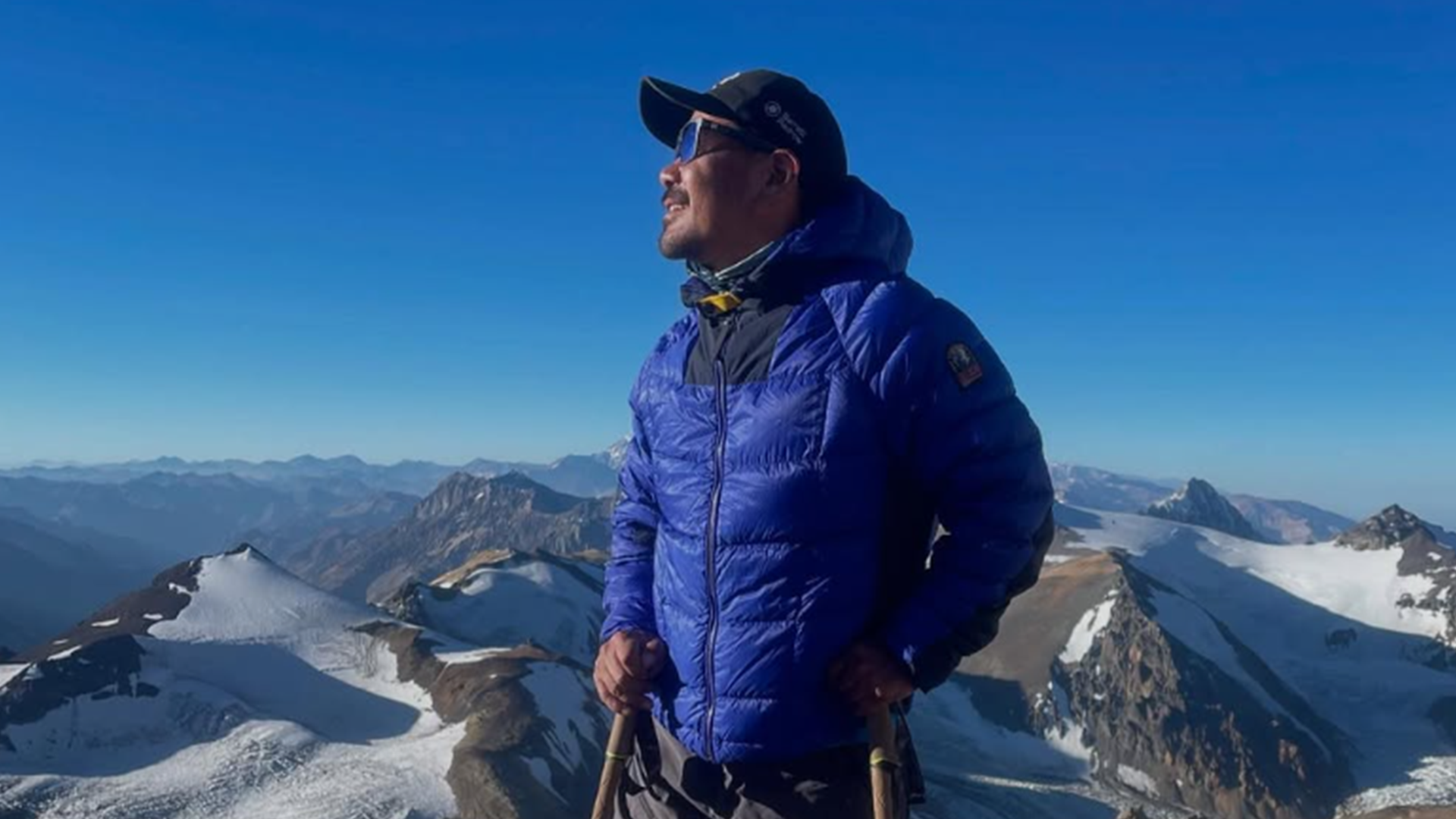
Ex-Gurkha Hari Budha Magar scales peak to get one step closer to Seven Summits record

Former Gurkha Hari Budha Magar has become the first double above-knee amputee to summit Mount Aconcagua.
The veteran climbed 6,960m (22,837ft) to reach the summit of the mountain in Argentina, which is the highest peak outside Asia.
Conquering Aconcagua is part of his challenge to complete the seven highest summits in the world within 12 months.
Physically and mentally exhausting
"Every mountain brings its own challenges, but for me these are amplified with my disability," said Hari.
"Although not the most technically difficult mountain I've climbed, it was physically and mentally exhausting as I climb three times slower than an able-bodied mountaineer.
"Aconcagua requires patience because there is a lot of waiting around for weather and ideal times to move.
"The wind is famously the challenge, but we've been very lucky and strategic in how and when we've chosen to move, making our exposure to wind more limited."
He admitted that reaching the summit itself had been hard, explaining: "It's a long hard ascent with very limited rescue options.
"We had to set up a special Camp 4 because of the length of the trail and sheer exhaustion, particularly when I needed to change legs on the snow and ice on the descent."
Breaking boundaries in mountaineering
In 2023, Hari became the first double above-knee amputee to summit Mount Everest.
Having completed five of the seven summits, he will climb the remaining two - Puncak Jaya in Oceania and Mount Vinson in Antarctica to complete his goal.
If successful, Hari will break new boundaries in mountaineering as the first double above-knee amputee to complete the Seven Summits - a feat only 500 people in history have achieved.
"This is a journey that started back in 2018 when I fought the supreme court to allow me to climb Everest," he said.
"It was always a childhood dream, but having lost my legs in Afghanistan and battled to come to terms with my life as an amputee, I wanted to drive a change in perceptions on disability.
"Everest was a great start, but it isn't enough to show people once. You need to do it over and over to inspire real change.
"The Seven Summits challenge is my chance to do just that in every corner of the world."
Advancing prosthetic technology
Hari was in Germany before the expedition, working closely with prosthetics experts at Ottobock to refine new designs for his climb.
"The new prosthetic designs we tested out on Aconcagua were incredible, allowing me more movement and control on the mountain. It gave me real confidence with every step, especially when it was slippery or uneven underfoot," he said.
A team effort
Hari was joined on the climb by fellow veteran, endurance runner, adventure athlete and mental health campaigner Sally Orange, who is raising awareness around mental health.
"Hari continues to push the limits of what's possible, proving that disability is no barrier to adventure," said the former Army officer.
"It's been a privilege to share part of this journey with him and be in the presence of his positivity and I have no doubt he’ll continue to break barriers and inspire others with his determination and resilience.”
Expedition leader Rami Rasamny, from Life Happens Outdoors, said: "Hari was an inspiration beyond words
"There wasn't a person who didn't stop in awe at this incredible human being. Humble, good-humoured and always smiling all whilst scaling one of the most challenging summits amongst the Seven."
Climbing for a cause
Hari is using his Seven Summits challenge to raise money for veterans charities, including:
- Blesma
- The Gurkha Welfare Trust
- On Course Foundation
- Pilgrim Bandits
- Team Forces
To support his fundraising efforts, donations can be made here.









